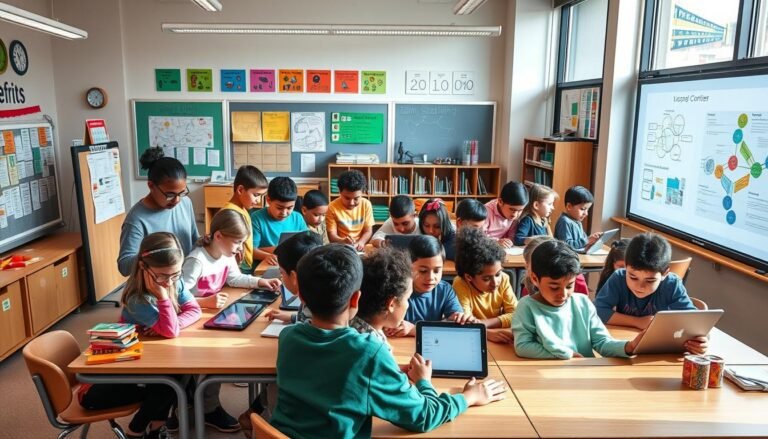Mastering Sociological Skills: Essential Insights
Ever wondered how sociologists understand human society? Mastering sociological skills is key to this complex world. It’s not just about reading books; it’s about thinking deeply, knowing different cultures, and using social theories in real life.
Starting as a sociologist means learning the basics. You need to understand important theories and see social patterns. But, it’s not all about learning. Being good at sociology means always learning more, talking with others, and using what you know in different situations.
Sociology is very relevant to our everyday lives. As you get better at sociology, you’ll see the world differently. You’ll notice the hidden rules that shape our society and the small things that affect our actions. You’ll see how different social issues are connected.
Are you ready to start this exciting journey? Let’s explore the key insights you need to master sociological skills. This will help you see the social world more clearly.
Key Takeaways
- Develop a strong foundation in sociological theories and concepts
- Enhance critical thinking and analytical skills
- Cultivate cultural awareness and sensitivity
- Practice applying social theories to real-world situations
- Stay updated with current research and trends in sociology
- Engage in collaborative learning through study groups and online discussions
- Utilize diverse resources for comprehensive understanding
Understanding the Foundations of Sociology
Sociology looks into human society, social ties, and groups. It teaches students to analyze complex social issues. Let’s explore the main parts of this interesting field.
Defining sociology and its scope
Sociology is the study of social life. It looks at how people interact and form groups. It also looks at how societies are shaped.
The field covers many topics, from crime to family life. Sociologists use various levels to study social structures. These levels help them understand how society affects people.
Key theories and concepts in sociology
Social theories are key to understanding sociology. Sociologists use theories to explain social events. These theories include functionalism, conflict theory, and symbolic interactionism.
Important concepts like social norms and institutions help sociologists understand society. These ideas help them make sense of complex social issues.
| Theory | Focus | Key Concepts |
|---|---|---|
| Functionalism | Social stability | Interdependence, consensus |
| Conflict Theory | Social inequality | Power, competition |
| Symbolic Interactionism | Everyday interactions | Symbols, meanings |
The importance of critical thinking in sociological analysis
Critical thinking is key in sociology. It helps students understand data and theories. By thinking critically, sociologists can find hidden patterns and challenge assumptions.
This skill lets them question social norms and analyze power structures. It also helps them suggest solutions to social problems.
“Sociology is the systematic study of all aspects of life designated by the adjective ‘social.'” – Dorothy Smith
Knowing these basics gives a deep view of social issues. It prepares students for careers like research or social work. In these fields, sociological skills are very useful.
Developing Cultural Awareness and Sensitivity
In our diverse world, understanding different cultures is key. It means knowing how to fit into various cultural settings. This skill helps us handle complex social situations and see things from different viewpoints.
Being culturally competent is more than just knowing about other cultures. It means having the skills to work well with people from different backgrounds. Studies show that companies with employees who can work across cultures do better with customers and services.
Managing diversity is crucial in our global society. By 2043, the U.S. will have more than half its population identifying as ethnic minorities. This change highlights the need for cultural understanding in how we interact with each other.
“Cultural intelligence is the ability to interpret a stranger’s behavior as their compatriots would.”
To become culturally competent, you need to:
- Know yourself
- Understand your cultural view
- Gain experience with different cultures
- Accept cultural differences positively
Studying how we interact with others shows that being culturally aware helps. It lets us spot patterns in our social groups. This skill is essential for good sociology and research in our diverse world.
Mastering Interpersonal Dynamics and Group Behavior
Interpersonal dynamics shape our social world. They help us understand complex social interactions and relationships. Sociologists study group behavior to apply their findings to real life.
Understanding Social Interactions and Relationships
Studying social interactions shows us a lot about human behavior. For example, training in interpersonal skills lowered social anxiety in 51 Spanish teens. Another study with 337 international students in Russia found that being mindful in social situations improved communication across cultures.
Analyzing Group Dynamics and Collective Behavior
Groups act differently than individuals. A study with 327 Chinese teachers showed that asking peers for feedback improved their work and happiness. This shows how strong relationships are key in the workplace.
“Emotionally intelligent supervisors play a crucial role in helping employees work through their interpersonal blind spots.”
Applying Sociological Theories to Real-World Situations
Sociological theories explain everyday events. For example, a study found that mimicking customers in customer service makes them happier. This idea can help improve customer service in many fields.
- 75% of employers offer new manager training
- 78% of employees report increased customer rudeness
- Surface acting at work leads to emotional depletion and burnout
Learning about interpersonal dynamics and group behavior helps us in our social lives. These skills are key for leaders, employees, and anyone wanting to improve their social skills and relationships.
Enhancing Research and Data Analysis Skills
Mastering research and data analysis skills is key for sociologists. These skills help professionals do thorough investigations and make solid conclusions. Sociology needs experts in many research methods and data analysis techniques for top-notch work.
Demographic analysis is a big part of sociological research. It looks at population traits and trends. Sociologists use this info to grasp social patterns and forecast future changes.
Applying social theory is also crucial. It means using known frameworks to understand data and explain social events. This skill links findings to big sociological ideas.
Having strong research skills is a must in sociology. These include:
- Using academic databases well
- Understanding data from different sources
- Keeping up with new research
- Using the right statistical methods
Employers look for graduates who can work on task forces and analyze data. Knowing how to use computers for word processing and data analysis is in demand. Being able to code and understand complex datasets is key today.
“Skills quality is considered more important than quantity when defining your skills.”
To boost your research and data analysis skills, think about:
- Taking courses in applied sociology and social data analysis
- Getting hands-on with statistical software
- Joining research projects or internships
- Going to workshops on advanced research methods
| Skill Area | Importance | Application |
|---|---|---|
| Demographic Analysis | High | Population studies, trend forecasting |
| Social Theory Application | High | Interpreting social phenomena |
| Data Analysis | Critical | Research projects, policy development |
| Computer Literacy | Essential | Data processing, report writing |
Sociological Skills: Essential Tools for Social Understanding
Sociological skills are key for getting along in communities and solving conflicts. They help people move through complex social situations smoothly and with deep understanding.
Core competencies in sociological practice
At the core of sociology, critical thinking and research skills shine. Sociologists use interviews and surveys to collect data. They must be organized to plan and complete research projects.
Cultural sensitivity is crucial. Employers look for people who bring a global view to their work.
Applying sociological skills in diverse settings
Sociological skills open doors to many careers. Graduates become health educators, lawyers, and market researchers. They are great at handling big data, which is useful in public health and policy analysis.
Good communication skills let sociologists share their findings and help solve problems at work.
Continuous improvement of sociological abilities
Staying up-to-date in sociology means always learning more. Many programs offer internships and community projects for real-world experience. By improving skills in cultural competence, writing, and data analysis, sociologists can face new social challenges.
This dedication to learning keeps them effective in their careers, whether in schools or real-world jobs.
Source Links
- 🎒 Online Sociology Undergraduate Tutors Spires™ | Mastering Sociology: Study Strategies And Tips
- Sociology | McGraw Hill
- Learning Aims
- Skills & Career Tracks
- Chapter 1. An Introduction to Sociology
- Learn How the World Works With a Sociology Degree – UNCF
- What is Cultural Competence and How to Develop It?
- Developing the Cultural Awareness Skills of Behavior Analysts
- An Important Skill Set for the 21st Century
- Editorial: Interpersonal skills: individual, social, and technological implications
- Mastering Organizational Behavior v14.0 | Textbook | FlatWorld
- Social and Emotional Skills New Leaders Need Most | Harvard Business Publishing
- What Skills Do Sociology Students Acquire? | Sociology
- Sociology between big data and research frontiers, a challenge for educational policies and skills
- 5 Skills Every Sociologist Should Possess
- Sociology | University Career Center
- The Critical Thinking Advantage: How Sociology Sharpens Your Analytical Skills – Key To Study







